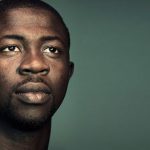A refugee as defined by the United Nations High Commissioner for Refugees is someone who has been forced to flee his or her country because of persecution, war or violence. A refugee has a well-founded fear of persecution for reasons of race, religion, nationality, political opinion or membership in a particular social group. Most likely, they cannot return home or are afraid to do so. War and ethnic, tribal and religious violence are leading causes of refugees fleeing their countries.
As a result of this instability, imparting the virtues of hope demands huge emotional and financial investment. While it is increasingly difficult to disassociate the mind and personality from the tag of being a refugee, the good news is, some have succeeded in changing their narrative – the reason for the article. While for some others, mental fortitude and resilience are lacking.
According to the legendary war correspondent, Martha Gellhorn, “It is amazing that the refugees stay sane. First the bombs, perhaps the ‘battle’ around them, their casualties, their naked helplessness; then the flight, leaving behind everything they have worked for all their lives; then the semi-starvation and ugly hardship of the camps or the slums; and as a final cruelty, the killing diseases which only strike at them.”
This sparks a genuine debate, perhaps refugees have the strongest minds the world has ever seen?
What are the latest refugee statistics?
According to UNHCR, the world is witnessing the highest levels of displacement on record. An unprecedented 65.6 million people around the world have been forced from home by conflict and persecution at the end of 2016. Among them are nearly 22.5 million refugees, over half of whom are under the age of 18. There are also 10 million stateless people, who have been denied a nationality and access to basic rights such as education, healthcare, employment and freedom of movement.
Syria and South Sudan have the largest number of the world’s refugees as a result of the war.
In 2016, the disastrous break-off of peace efforts in July in South Sudan contributed to an outflow of 737,400 people by the end of the year. That number has continued to rise during the first half of 2017.
Here are some of global icons who have been refugees but found their way out of this ugly menace.
Magid Magid – Politician
Magid Magid is a British-Somali activist and politician who served as the Lord Mayor of Sheffield from May 2018 to May 2019. His appointment attracted significant media attention, as he is the first Somali, the youngest-ever, and the first Green Party councillor to hold the role.
In May 2019, he was elected to the European Parliament as Green Party MEP for Yorkshire and the Humber.
Born in the region of Somaliland, Somalia, Magid came as a child refugee to Britain in 1994. Magid Magid, who arrived in the UK at the age of 5 from war-torn Somalia and couldn’t speak English. He grew up in Burngreave, Sheffield and studied aquatic zoology at the University of Hull where he was elected president of Hull University Union. He has worked in digital marketing and was elected as a Green Party councillor on Sheffield City Council in 2016. From 2017 to 2018, he served as Deputy Lord Mayor, and during this period he participated in the third series of the reality show Hunted.
IIhan Omar – Politician
 After diligently running a campaign for the Minnesota Congressional seat, Ilhan Omar, the first Somali-American lawmaker has won the Democratic primary in her home state.
After diligently running a campaign for the Minnesota Congressional seat, Ilhan Omar, the first Somali-American lawmaker has won the Democratic primary in her home state.
She will be filling the seat previously occupied by Rep. Keith Ellison, D-Minn., in Minnesota’s fifth congressional district
The 36-year-old former refugee took the seat by more than twenty thousand votes, out of 135,318 votes cast leading her on track to be one of two Muslim women in Congress.
K’NAAN – Musician
 Keinan Abdi Warsame popularly known by his stage name K’naan is a Somali Canadian poet, rapper, singer, songwriter, and instrumentalist. He spent his childhood in Mogadishu. His father, Abdi, had left earlier when he was still a boy to work as a taxi driver in New York City.
Keinan Abdi Warsame popularly known by his stage name K’naan is a Somali Canadian poet, rapper, singer, songwriter, and instrumentalist. He spent his childhood in Mogadishu. His father, Abdi, had left earlier when he was still a boy to work as a taxi driver in New York City.
K’naan’s early years were enveloped in poetry and song, with his aunt Magool often singing to him This changed following the start of the civil war when at the age of 12, three of his friends were shot by an older adolescent gunman. He rose to prominence with the success of his single “Wavin’ Flag“, which was chosen as Coca-Cola‘s promotional anthem for the 2010 FIFA World Cup.
Abdul Aziz Muhamat
 He was for five and a half years held in an Australian immigration detention centre in Papua New Guinea.
He was for five and a half years held in an Australian immigration detention centre in Papua New Guinea.
He had fled civil conflict in Sudan’s western Darfur region in 2013 and had flown to Indonesia. Muhamat boarded a boat headed to Australia, but the boat was intercepted by Australian officials after six days at sea.
The 25-year-old was forcibly sent to Manus Island, and for over five years, he exposed the “inhumane” and poor living conditions he and his colleague asylum seekers faced at the centre.
Muhamat did this through thousands of WhatsApp messages he sent to a journalist from the centre, who told the story in a podcast. The podcast, called “The Messenger” won best radio/audio feature at Australia’s Walkley Awards in 2017.
Now, for bringing the world’s attention to the harsh realities at the centre under “the very cruel refugee policy” of Australia’s government, Muhamat has been awarded a major international human rights prize.
He was named the winner of the 2019 Martin Ennals Award in the Swiss city of Geneva during a ceremony held on Wednesday night, reports Aljazeera.
Adenah Bayoh – Real Estate Developer
 Adenah Bayoh’s emotional success story is one that will make you shed a few tears, put a smile on your face and motivate you to do more with less.
Adenah Bayoh’s emotional success story is one that will make you shed a few tears, put a smile on your face and motivate you to do more with less.
Her journey as a refugee began at the age of 9 when one night she was suddenly awakened by her grandmother after rebels entered their Liberian village. After packing a few bags, they quickly escaped and walked more than 200 miles until they reached Sierra Leone.
At the age of 12, Adenah had to live in a refugee camp in Sierra Leone until she got the opportunity to move to America where she was warmly accepted in Newark, New Jersey.
After years of successful schooling, Adenah started working in the banking sector and slowly invested in homes which she successfully rented out. She was soon hungry for more with a dream of being an entrepreneur. Inspired by her grandmother who was a farmer and owner of a restaurant, Adenah decided to go into the restaurant business.
Today, Adenah Bayoh is the owner of three IHOP franchises in Newark, Paterson, and Irvington in New Jersey, a successful real estate developer managing over $250 million dollars in urban redevelopment projects and owns several homes.














